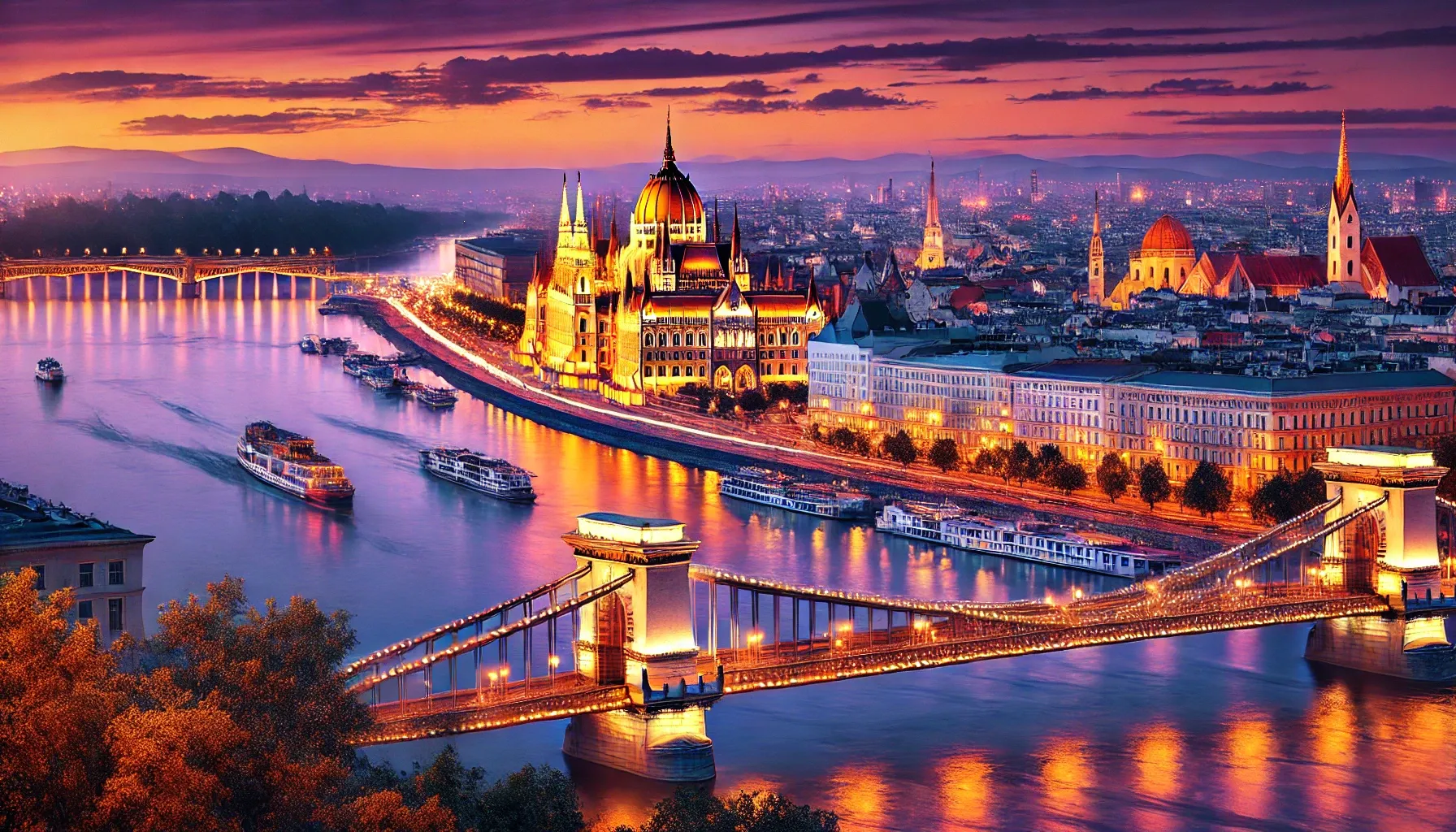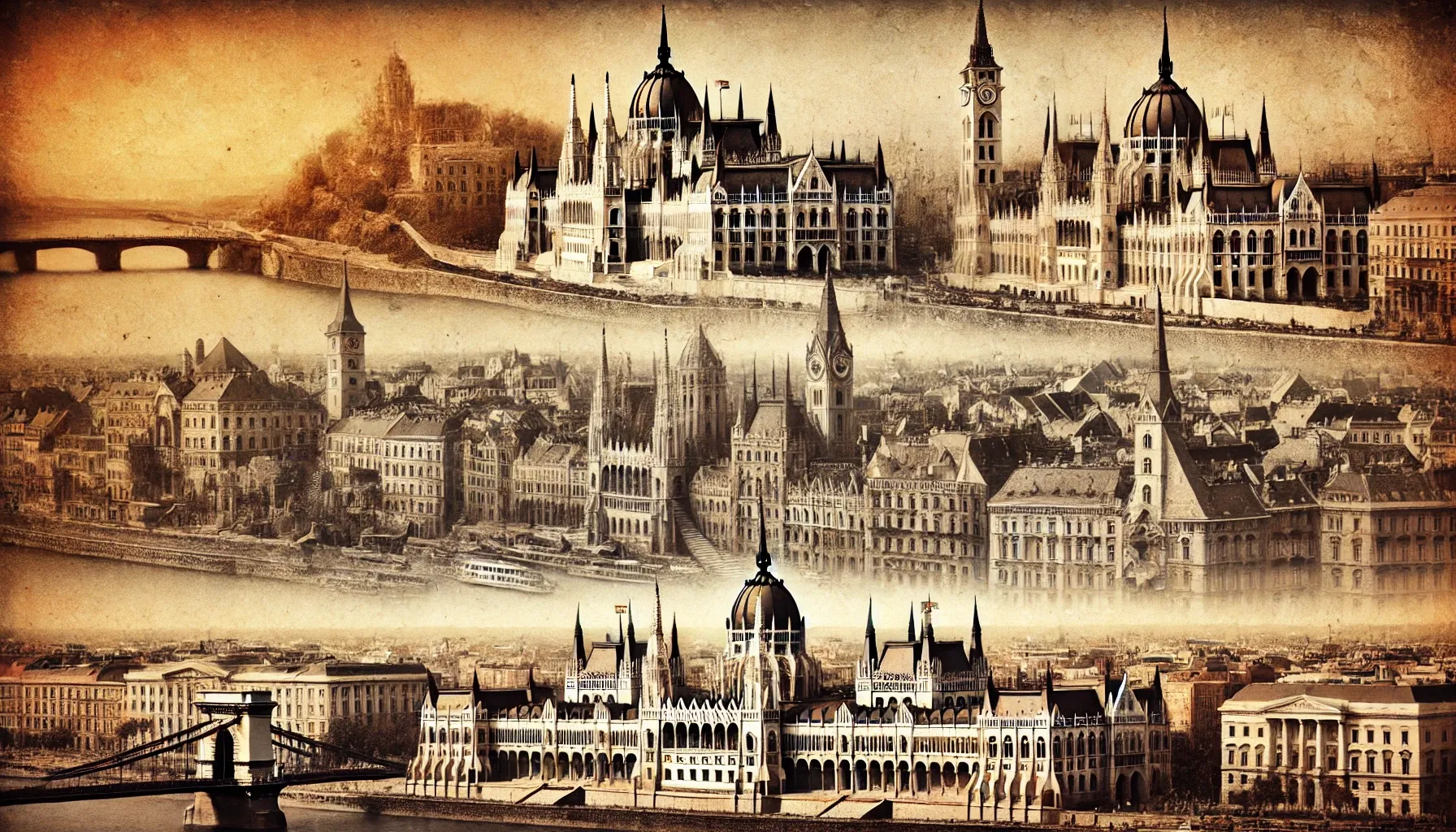Hungary: The Center of Europe

- Hello! How can I help you today?
- The History of Hungary: A Unique Narrative of State Formation
- The political system and international participation of Hungary
The History of Hungary: A Unique Narrative of State Formation
The city of Székesfehérvár was established in 972 at the site where the leader of the Hungarians, Árpád, stopped during the migration of the Hungarians to the territory of modern-day Hungary. In the early 11th century, Esztergom became the capital, playing a key role in political, economic, and religious life, and serving as the residence of Hungarian kings until the 13th century. Later, Buda (Budapest) became the capital.
Blossom and decline:
- In the 11th century, the country flourished under the rule of Istvan the Saint, becoming a legitimate European kingdom.
- In the 12th century, Byzantium took some lands from Hungary, and the Crusades and the Mongol invasion of the 13th century brought destruction.
- The second flourishing occurred in the 14th century, when the country strengthened its influence in the region.
- The beginning of the 16th century marked a period of decline due to pressure from the Austrian Habsburg dynasty and the Ottoman Empire, as well as internal protests.
The era of Turkish domination and revolution:
- From 1526 began the era of the Turkish yoke, which ended with the liberation of the country by the end of the XVII century.
- The revolution of 1848-1849 led to the creation of a new state - Austria-Hungary, with Budapest as the second city of the empire.
Modern history:
- After World War I, Hungary became an independent state, but World War II led to a communist regime.
- It was only in 1989 that the communist regime was overthrown, and the country became a parliamentary republic.
The era of Turkish domination and revolution: Modern history:

The Hungarian system of governance is carried out through a number of key institutions, where supreme power belongs to the president, who is elected by the parliament for a five-year term. This head of state plays an important role in maintaining constitutional order and represents the country on the international stage. The government of Hungary is headed by a prime minister, appointed by the parliament, which also forms the Council of Ministers responsible for executive functions.
Administrative division and the status of the capital
Territorially, Hungary is divided into 19 administrative units known as counties, along with the capital Budapest, which has a special status as a city of national significance. These areas serve as the foundation for local governance and the development of regional policy.
International participation and integration
Hungary has been actively participating in international organizations such as the UN since 1955, GATT since 1973, and the IMF and World Bank since 1982. In 1991, it joined the Council of Europe, became a member of NATO in 1999, and joined the European Union in 2004, highlighting its commitment to integration into the global community.
Characteristics of the economy
The economy of Hungary is characterized by stable growth and the development of market relations. The main sectors include machine engineering, equipment manufacturing, and the chemical industry. Industry constitutes a significant part of the GDP, alongside agriculture and construction.
Industrial base and well-known companies
Hungary has a well-developed industrial base, including metallurgy centers in various cities. Well-known companies include Ikarusbus, Globus and Egis Pharmaceuticals Ltd.
Cultural features and culinary heritage
The official currency of Hungary is the forint. The country is also known for its "Svoboda," "Globus," and Egis Pharmaceuticals Ltd.
Cultural features and culinary heritage
The official currency of Hungary is the forint. The country is also known for its
There are amazing countries all over the world, and Hungary is one of them. Often overlooked outside of Budapest, Hungarian cities and attractions have their own unique charm. Today, Hungary attracts tourists from all corners of the globe with its culture, architecture, and nature.
Unique story
The country has a unique history, from the founding of the kingdom and development to the modern times. It is now a democratic state with a rich cultural heritage and beautiful landscapes. beautiful landscapes. Tourists are attracted not only by the capital city and major attractions
Comment
Popular Offers

Subscribe to the newsletter from Hatamatata.com!
Subscribe to the newsletter from Hatamatata.com!
I agree to the processing of personal data and confidentiality rules of Hatamatata





